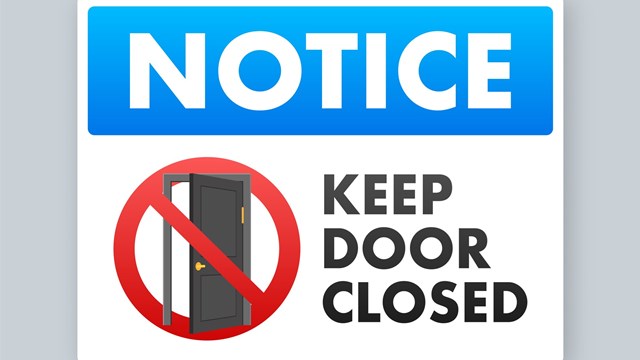Even with crime rates decreasing and cities improving their safety profiles, crime and public safety are still issues we all must deal with in both urban and suburban environments. One of the worst things a board/management team can do is turn a blind eye to crime, thinking 'it won't happen to us.' Criminals don't care about zip code, or the number of people in your community, or whether you live in a large city or a small town. Crime happens everywhere and the best way we can prepare for it is to realize that it could, indeed, happen to us.
From small, tight-knit communities to sprawling gated HOAs, all association boards and residents in New Jersey must address their security and safety needs and understand that there are specific steps they can take to protect themselves and their property.
Mindfulness = Best Defense
The best way to deter crime in your community is to stay constantly vigilant. Often, people will relax their guard when things are going well, thinking that no crime will ever happen since all has been quiet in the past.
"We find that more than 60 percent of completed burglaries happen in homes where the burglar has gotten in through an unlocked door or window," reports Michelle Boykins, director of communication for the National Crime Prevention Council (NCPC). "And that's something that can be easily rectified by people just using their locks."
Even though people sometimes become lax with these simple things, experts think that New Jersey residents and others around the nation have remained mindful of crime and security issues. Times are turbulent in our world at the moment, and, although statistics might point to a general decrease in crime rates, people still have safety on their minds.
"I think people are quite cognizant of their surroundings and crime," says Frank Seggio, president of MPG Communications, a security firm based in Ocean. "Not only have people remained mindful, but they've also taken precautions to try and give themselves peace of mind. The fact that crime rates are down is just one small headline on the nightly news - but then that's followed up with all the murders, terrorism, and other crime that happened throughout the day."
Inexpensive Improvements
Some New Jersey associations may take the expensive road when it comes to security—taking such measures as hiring security personnel, utilizing a "motorized patrol" service, and installing intricate gates and security systems. However, improving the security of your community can begin with simple things that don't punch a whopping hole through your budget.
Boykins recommends pretending that you are locked out of your home. How would you get in? If you can identify a way to access your home without a key, then so can an intruder.
"You need to look at things like natural access control - how do people get into your community?" Boykins asks. "Look for those places where someone can come in undetected and problem-solve for that."
Solutions can be as simple as looking at your landscaping. Are your grounds maintained well, with trimmed shrubs and open areas that make it hard for the unwanted element to find places to hide? If upon closer examination, you realize that your grounds—especially close to the buildings—would be a great location for a knock-down-drag-out game of hide-and-seek, then you might want to rethink your shrubbery.
"Pull the landscaping away from the structure so there aren't any dark spots," advises Seggio. "Another obvious step is to open up dark areas is with good lighting."
In addition to having good exterior lighting on your property, you should encourage residents to keep a few lights on in their homes even while away.
"Maintaining good lighting in and around common areas and homes is one step to discouraging muggers and vandals from congregating around your property," reports Anthony Frusco, director of operations for Marion Security Agency in Red Bank. "Give the impression that homes are occupied. Leave lights on, don't leave mail piling up in the mailbox, and keep lawns and foliage maintained."
According to Seggio, one of the largest growing areas in the field of home security these days is video surveillance. Many communities are utilizing this technology, which is becoming more cost-effective than in the past through the use of wireless technology. Some even tie into private cable or private satellite systems. Seggio says that this method of security allows people in housing developments to watch different areas of their development over their computer or television screen. So, if you send your child to check the clothes in the laundry room, you can watch him on the screen to be certain he or she is safe.
"Cameras are a good deterrent to crime," he says. "You want prospective criminals to know you have them."
Make Friends with the Police
Working with your local police force is another way to improve your security profile. Often people forget that police departments are there for the prevention of crime in addition to those times when crimes happen.
"Call your local police department and ask who is assigned to crime prevention activities," recommends Boykins. "Let them know that you're interested in working with them to identify crime problems and finding solutions for those problems."
Most times, says Seggio, the police department will be happy to come to your community to present ways you can help them help you. This kind of education doesn't cost anything and is one direct way to help your residents become more aware of their surroundings.
"Local police in general have done a tremendous job over the last several years trying to interact more with the community," he says. "They have great community outreach programs where they come in and talk to your association and hand out printed matter. They also provide training for those who want to join or start a neighborhood watch team."
Frusco agrees that neighborhood watch groups are a good idea.
"We strongly encourage neighborhood 'crime watch' activism with residents," he notes. "This is cost-effective as it utilizes a pool of residents and can greatly enhance the overall level of security. If you think in terms of numbers, one security officer in a marked patrol vehicle provides a visible deterrent, but one hundred neighbors keeping trained eyes out for unusual or suspicious activity in their area creates a greater blanket of surveillance."
In addition to this educational material, local police might even provide police radios for those interested. Usually they also are willing to assess your property, noting the access points, and evaluate those areas that should be beefed up.
Protective Policies
Each individual living in a housing community must keep proactive when it comes to crime prevention. However, there are certain measures boards can take, as well, to improve that sense of security we all long for, especially at home.
Boards might find that it's difficult to arrive at a consensus regarding how much security people want - and are willing to put up with.
"Security is a dirty word for many people," Frusco explains. "Depending on the individual, people might not want to feel imposed upon when asked to produce their ID prior to entering a building or community, and they might not want to have their guests challenged or impeded from entering. How much security is a community or association willing to tolerate?"
Residents who are asked to provide ID are at least becoming aware that they should be thinking about matters of security. This is but one step in an education process that the board can encourage for the residents of its building.
"The cheapest way for boards to increase security is to educate the people and make them more aware of their surroundings," says Seggio.
Another thing boards can do, according to Boykins, is download reproducible educational brochures from the NCPC's website (www.ncpc.org) to distribute to its residents. Brochures are available on such topics as starting a community crime prevention, home safety, preparedness, and personal safety.
"As a board, your policies are ways to consciously remind people to take action on the steps you've set up so they can be safer," advises Terri Kelly, NCPC's director of community outreach and government relations. "A policy about keeping the landscape trimmed is not just about aesthetics—it's about safety. And it's not just about policy, but about the action and the enforcement of it."
Make Residents Responsible
No matter what safety measures a community or a board takes, the best way to prevent crime and increase security in your environment is always to be vigilant and remember that it can happen to you.
"The message from NCPC is 'lights, locks, alarms, and personal responsibility'," says Boykins. "We each have to take responsibility for preventing crime in our community. Do the simple things, like having the right locks on your doors and windows and making sure you use them."
Boykins points out that many insurance companies will not cover a break-in where the burglar entered the home through an unlocked door or window.
"The goal is not to make people paranoid about every aspect of their lives—the goal is just to be mindful, and thus safer," says Kelly.
What is the most common security mistake condo buildings and associations make?
"Becoming complacent," reports Frusco. "Once you have established programs and you have experienced a period of minimal or no criminal activity, do not relax your procedures or make exceptions. While impossible to prove, the reason for the lack of crime may be a direct result of those things that have been done to prevent it in the first place."
Domini Hedderman is a freelance writer living in Pennsylvania and a frequent contributor to The New Jersey Cooperator.







Leave a Comment